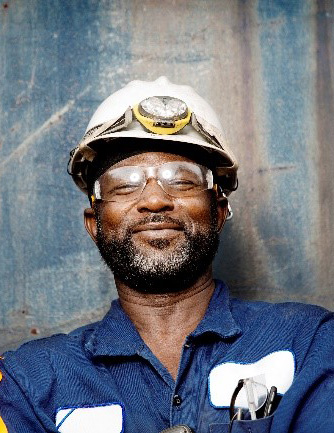Building resilience in mine workers
It brings in billions in export earnings, but coal industry workers may struggle to deal with stressors unless employers and workers can build resilience, research by Professor Rebecca Mitchell has found.

Building resilience in mine workers
Images of rugged coal miners in high visibility wear and heavy machinery are almost iconic, but without resilience, their capacity to deal with a range of industry specific psychological stressors may be compromised.
Workers in open cut and underground coal mines are the focus of research by Professor Rebecca Mitchell from The Health and Wellbeing Research Unit (HoWRU), who found resilience was the key to alleviating high levels of psychological stress. The research is sponsored and funded by the Australian Coal Association Research Program (ACARP) which is committed to understanding the work-related factors contributing to the resilience and wellbeing of mining employees.
By boosting resilience, workers are better able to avoid escalation of stress to psychological distress in an industry where building mental health is the focus of current attention. Workplace practices, both informal and formal, can contribute to improved resilience. This could be as simple as providing an informal sausage sizzle with staff, or clearing the way for workers to psychologically detach from their jobs at the end of their shift to rest and recover from emotional exhaustion.
Although the capacity for personal resilience is often the focus of research, this project recognises that workplace practices can make a substantial difference with well targeted resources benefiting both the individual and mining operation in an industry with sources of psychological distress that are specific to it because of working conditions and inherent industry volatility.
Increasingly, miners and their families may also face hostility as social attitudes change towards the sector where they are no longer seen as heroes for their contribution to the economy.
“Some have gone from being proud of what they do for the economy to worrying that their children may be bullied at school or their wives are not being invited to social events. Miners may be confident of their contribution, but it’s distressing that their family is negatively impacted,” Prof Mitchell says.
Although well paid, the study showed many coal mining employees also worried about losing their jobs, and the impact it would have if they had borrowed heavily for housing, cars or other lifestyle enhancements. These concerns were not addressed by traditional Employee Assistance Programs (EAP) but were identified as important to undermining resilience.
While some pressures, such as the volatility and uncertainty of the coal industry were beyond the control of workers, many other factors were identified, including organisational ones.
Identifying a range of practices and strategies in the workplace to promote resilience was an important outcome of the research.